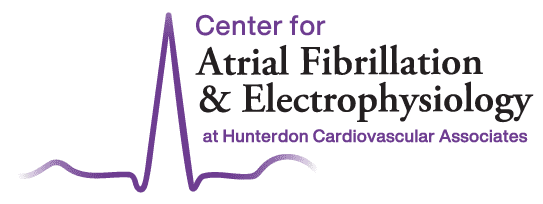What Is Cardiac Ablation?
Cardiac ablation is a procedure that offers the best chance at maintaining a normal heart rhythm for patients with atrial fibrillation. It uses cold (cryoablation) or heat (radiofrequency ablation) energy to create small scars in your heart that block abnormal electrical signals and restore the normal heartbeat. It is used to correct arrhythmias or heart rhythm problems.
Cardiac ablation is done using thin, flexible wires (catheters) that are inserted through the arteries or veins. Cardiac ablation for atrial fibrillation is more effective for patients with an early form of the condition, called paroxysmal atrial fibrillation, but is still effective for many patients with persistent or longstanding persistent atrial fibrillation.
Why May This Procedure Be Performed?
Cardiac ablation is used to correct heart rhythm problems and may be one of the first treatments your doctor recommends, depending on your condition. When your heart beats, the electrical signals that tell your heart when to contract (squeeze), must follow a very specific pathway through your heart. A disruption in the pathway can cause an abnormal heartbeat or arrhythmia. Your doctor may also recommend cardiac ablation if other medicines or treatments haven’t worked in the past.
Who Is a Good Candidate?
If you have atrial fibrillation you may be a good candidate for cardiac ablation if you are suffering from symptoms such as:
- Heart palpitations
- Lightheadedness
- Shortness of breath
- Fatigue
Risks
Cardiac ablation offers the best chance at maintaining a normal heart rhythm for patients struggling with arrhythmias, but like any procedure, it comes with its own risks. These include:
- Infection or bleeding at the site where the catheter was inserted
- Heart damage, including bleeding around the heart
- Blood vessel damage
- Worsening or new arrhythmia
- A slow heart rate that may require a pacemaker to correct
- Stroke or heart attack
- Blood clots in the legs or lungs
- Damage to kidneys from the dye used during the procedure
- Narrowing of the veins that carry blood between the lungs and heart
- In rare cases, death
What to Expect From the Procedure
Before your procedure, your doctor may order several tests to get more information about your specific heart condition. You will need to stop eating and drinking the night before your procedure. Your medical team will tell you how to continue any medications you may be taking.
Once you are in the hospital, a specialist will insert an IV into your forearm or hand and sedate you. For some catheter ablation procedures, you may be lightly sedated, or be given anesthesia and put to sleep, it depends on the specific arrhythmia you have.
During the procedure, a series of catheters are inserted into the blood vessels (usually in the groin) and then threaded into the heart. These catheters have sensors that send electrical impulses and record your heart’s electricity. Your doctor then uses this information to determine the location of the cells that are causing the arrhythmia. Once this location is determined, the catheter is placed against them and permanently damages the culprit cells using radiofrequency energy (electrical signals delivered at very high frequency) or cryoablation (“freeze burn”). As a result, the damaged tissue stops sending electrical signals, preventing the arrhythmia from recurring. This may feel mildly uncomfortable, but if you have severe pain, let your doctor know immediately.
Catheter ablation varies greatly and depends upon several factors of your individual arrhythmia. Some of these factors may not be evident until the procedure, so it is usually impossible to predict the exact length of the procedure beforehand. After the procedure, you will be taken to a recovery area for a few hours where you will be monitored. Depending on the condition treated, you may go home that day, or spend the night in the hospital. You will need to have someone drive you home after the procedure. Some patients feel slightly sore afterward, but this should last no more than a week. Patients are instructed to avoid certain strenuous activities for several weeks after catheter ablation.
The Center for Atrial Fibrillation and Electrophysiology at HCA is dedicated to treating patients with disorders of the heart’s electrical system. With specialty atrial fibrillation management as well as state-of-the-art options for other types of arrhythmias, we provide the resources you need to take back control. If you are suffering from arrhythmia, contact us today.

Diagnostic Services
Echocardiogram
An echocardiogram, or echo, is a non-invasive ultrasound procedure that shows the anatomical structures of the heart.
Electrocardiogram
(ECG or EKG)
An electrocardiogram is a painless, noninvasive test performed in a doctor’s office or hospital to help diagnose an abnormal heart rhythm or other heart health problem.
Stress test
An exercise stress test is a non-invasive treadmill test that is used to assess how well the heart responds to extra demand. Medication-induced stress tests are also used.
Holter monitor
A Holter monitor is portable and continuously records the heart’s electrical activity during daily activities during a 24-hour or 48-hour period of time to identify abnormal heart rhythms.
Cardiac event monitor
A cardiac event monitor is a non-invasive, portable method for diagnosing a cardiac arrhythmia by recording a patient’s heart rate and rhythm during a period of time
Contact The Center for Atrial Fibrillation and Electrophysiology at HCA today to make an appointment to discuss your personalized diagnosis and treatment options with one of our specialists. Our team approach to AFib and other arrhythmias provides the resources you need to take control of your heart health.
